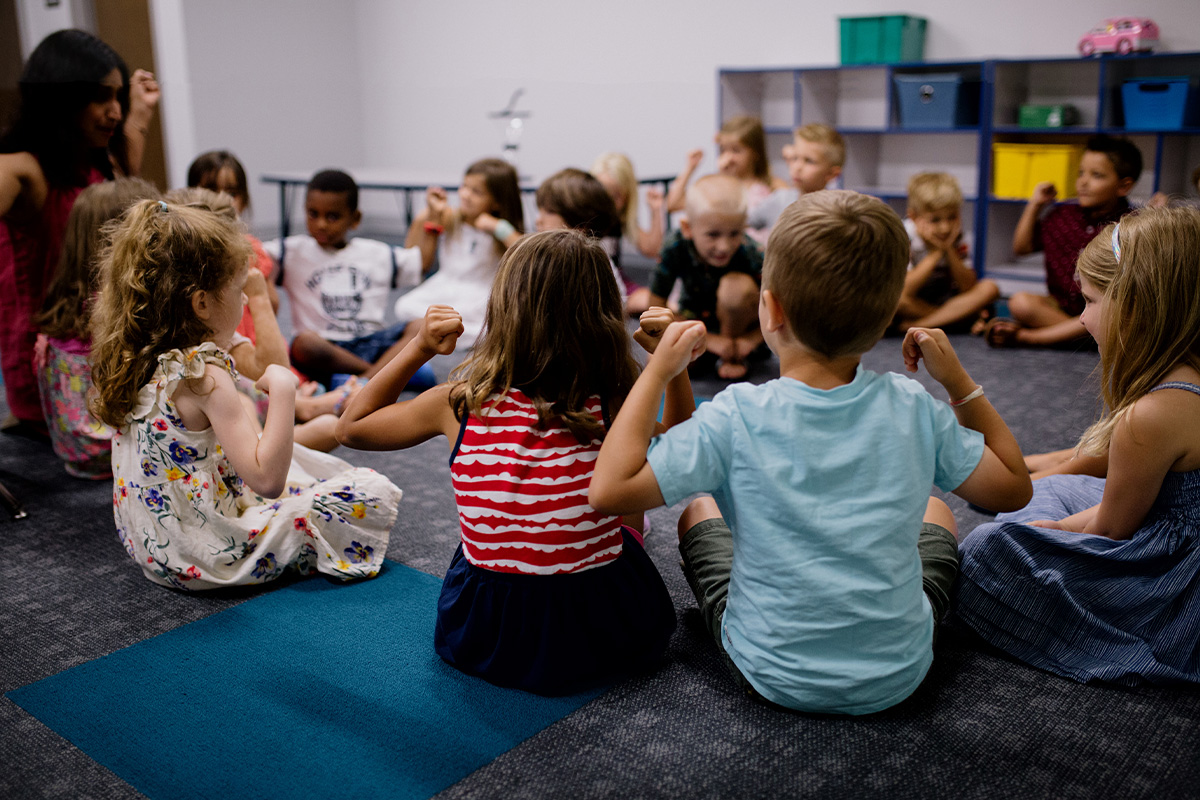This is the second of two articles in a series on Trauma-Informed Children’s Ministry by INCM board member Kim Botto. Read the first article here.
If you’ve worked with kids for any time, you’ve had “that” kid. You know who I’m talking about. The kid who brings the energy level up as soon as they walk in the room. The child who has a difficult time following instructions. The one who “ruins” our plans for the day.
As I considered “that” kid, I began to reevaluate our goals. What were we really trying to accomplish in the kids’ ministry each week? And what did our volunteers believe the goal of the kids’ ministry was?
As we began training our teams on trauma-informed care, we realized that many leaders thought the goal of the weekend services was to get through all the activities in the lesson. So we began to reframe a win. Our goal was to provide a safe, fun, and welcoming environment so kids could know Jesus and grow in their faith.
Many times, the lesson was an integral part of moving towards that goal, and relationship was always key. So at times, the lesson for the day needed to be pushed aside so leaders could focus on the relationships and the sweet little faces in front of them. Being a safe place for a kid to ask hard questions and process the world around them is fertile ground for the growth of a relationship with Jesus.
As we moved towards being a trauma-informed ministry, we looked for practical strategies we could pass on to our volunteers that would help build connection as we worked to help kids know Jesus and grow in their faith.
Here are 3 practical trauma-informed responses that we regularly use in our ministry and with our own kids at home:
1. Connect before you correct
Dr. Karyn Purvis was a pioneer in working with kids who had experienced trauma, and this is a phrase she repeated often. Children who have experienced trauma feel profoundly unsafe. When they are acting out, their primary need is often to feel a sense of connection. They are looking for love in the most unloveable ways.
Rather than going immediately to discipline, connect with the child. When a child hits another child in an attempt to get a toy, connect first, “I know you love trucks and you really wanted to get that truck from Kaira” – then you can move into correction, “We don’t hit others. Let’s go find another toy for you to play with.”
2. Redo
God is so patient with us, and often gives us a redo when we don’t get it right. We can do that with kids too. For example, let’s say a kid runs to a small group, when you clearly told him to walk. Rather than scream, “WALK!” calmly tell them what the expectation is: “After a large group, we walk to small group and sit in a chair.”
Then allow them to try again. Through redos, kids are actively learning how to act appropriately in the world! Due to some rough beginnings, some kids just haven’t learned socially acceptable ways to respond and interact. We get to help train them in the correct way.
3. Offer choices
Kids who have experienced trauma, and these kids may be the ones most likely to display challenging behavior, often feel like they’ve lost control over everything. We can help them regain their voice, by giving them choices.
In the 5th-grade room one weekend, we had a child who was sitting in the middle of the large group and was very disruptive. I went over to him and asked if he’d like to walk in the back of the room during large group or sit in a chair at the back with me. He chose to walk in the back of the room. And the best part, he fully understood what was being taught that day. His responses in small group showed that he not only heard, but he was figuring out how to apply those truths to his life.
Conclusion
Moving toward being a ministry that is trauma-informed reflects the heart of Jesus. It’s about being curious and patient while also speaking truth. It’s truth and grace. Jesus said, “Let the little children come to me. Don’t keep them away. The kingdom of heaven belongs to people like them.” (Matt 19:14 NIRV)
Jesus didn’t specify certain kids that should come to him. He didn’t say, “Let the little compliant ones come to me, the ones who sit quietly until they are called upon.” He welcomed ALL kids. And as followers of Jesus leading kids’ ministries, it’s our call to welcome all kids, regardless of their backgrounds, energy levels, or unique needs. When we do that, I believe we’re responding in a way that Jesus would.






